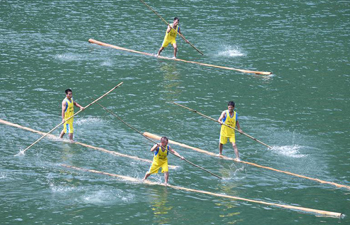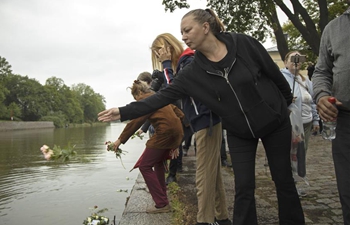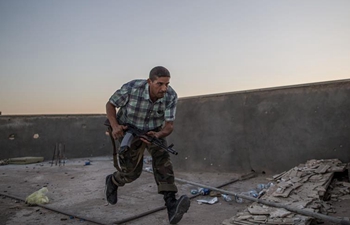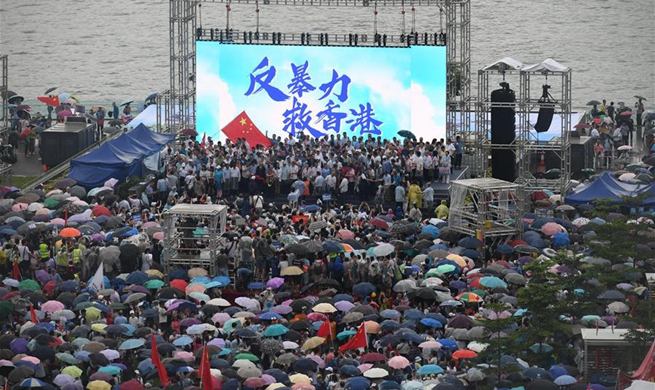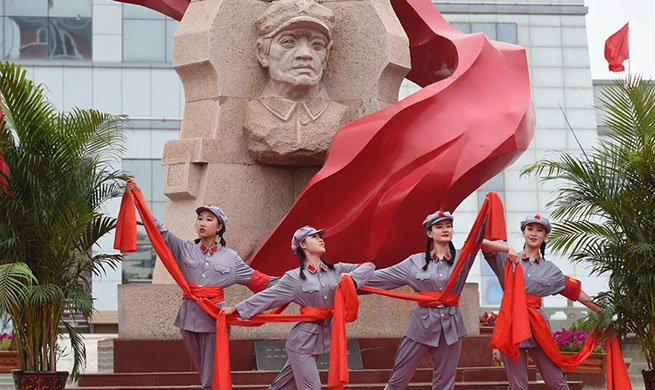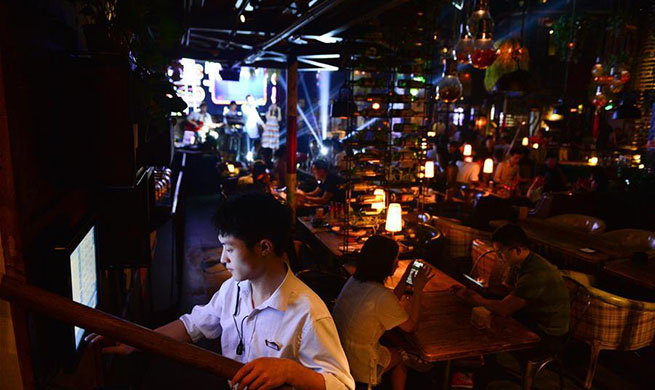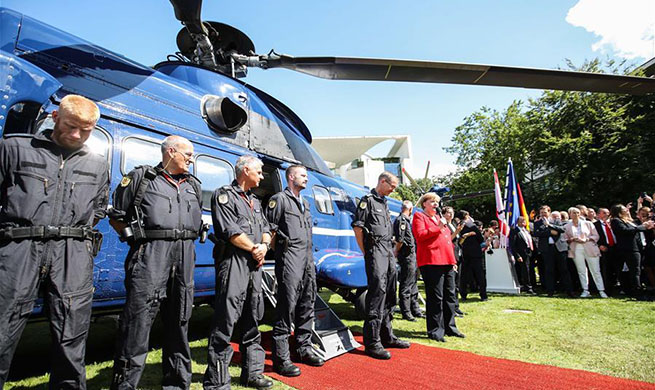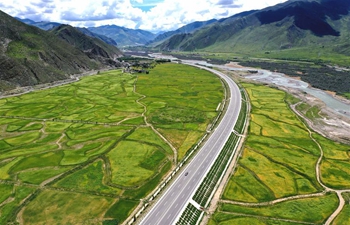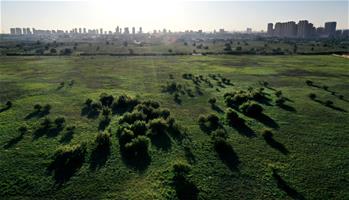VIENTIANE, Aug. 19 (Xinhua) -- The "Peace Train-2019" China-Laos humanitarian and medical joint rescue exercise has carried out comprehensive epidemic prevention and control drills in Lao capital Vientiane.
On the simulated background of a cholera epidemic outbreak after a major mudslide disaster and massive poisoned patients waiting for treatment after a chemical plant being destroyed by the mudslide, on receiving the information, the China-Laos joint forces for infectious disease treatment and the sanitation and anti-epidemic, immediately started the emergency response scheme.
A joint prevention and control team was formed and rushed to the scene to coordinate the risk assessment of the epidemic, the analysis of the situation of human activities, epidemiological investigation, and sampling of suspected cases.
During the exercise, the Chinese health and epidemic prevention team carried chemical poisoning on-site disposal equipment, infectious disease epidemic disposal equipment, and major infectious disease pathogen detection reagents, severe food poisoning on-site disposal equipment and nearly 100 kinds of reagents, as well as portable sprayers, hot smoke machine, etc., to carry out large-scale disinfection and disposal operations, together with the health and epidemic prevention vehicles.
The Chinese epidemic prevention personnel conducted sampling and rapid screening of the suspicious cases, and the Lao laboratory testing personnel carried out laboratory testing and confirmation work.
Based on the chemical poisoning situation, the joint forces quickly set up a decontamination station. With effective protection,the station made the organic gas screening of the chemical contaminated materials of the wounded, to determine the injury, to remove the chemical contamination on the spot, and dispose the contaminated clothing.
Professionals from both sides carefully deducted every aspect of the site's disposal, performing standardized actions to ensure possibly best control of the epidemic, and to achieve effective decontamination and treatment of chemical poisoning wounded. The epidemic prevention personnel also conducted investigations on water pollution, food safety, and insect-borne risks, and made precise disinfection and disposal with the Chinese army's new health and epidemic prevention vehicles.
The professionals of both sides also conducted in-depth exchanges, sharing experiences of earthquake relief, controlling Ebola virus in Africa, and chemical disaster relief among others.




